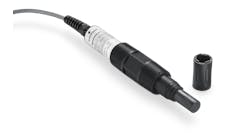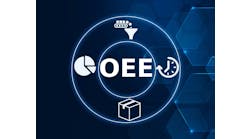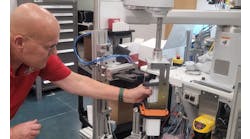Some nerd humor: I opened a service call to address a curious error on a process gas chromatograph, and wasn’t having luck contacting Craig, the factory tech support technician on whose expertise we’ve relied for a few decades. His eventual email response suggested a reload of the analyzer’s configuration might address the issue. The problem was rare enough and the GCs are reliable enough that we get little practice on the small numbers deployed in the plant, so my reply was, “So how exactly do you reload the database?” or words to that effect.
With (more than likely) one experienced tech servicing many time zones, the pace with which the problem could be solved was limited, and the plant manager was getting impatient with the broken measurements. So while we waited to get more guidance from Craig, we checked the GC manual (a PDF file on the laptop used for field service) for instructions. Low and behold, we figured out how to find the most recent database backup (thank goodness there was one, and it wasn’t too moldy), and other steps for downloading it to the GC. When Craig was able to connect on the phone, we reported we'd carried out his suggested fix successfully—after reading the manual. Craig’s response (this is the joke part): “Oh no, you had to resort to that?”
Those of us reading through bifocals remember bookcases full of manuals and catalogs routinely consulted for engineering and maintenance tasks. It’s nice these are now largely in searchable electronic form, and that context-sensitive help is sometimes present to give some guidance. But while we enjoy these innovations, it might not be wise to expect our successors to have patience for reading the manual. The generations replacing the bifocal people have grown up learning by clicking around, poking, pinching and watching YouTube. Tasks that require a lot of training, research, reading and consulting manuals might be met with ennui and impatience.
Even if you’re in your 60s and considering retirement, I’d be surprised if you’ve read the manual for your smart phone. Is there a training class you can attend? On the contrary, it’s learn by playing; the manual sits in the box and at best, we get a tips from a friend or online discussions. Apps are compact and limited in scope, and when you only need to execute a half-dozen tasks, they should be easier to maintain and upgrade, and easy for end users to learn.
Over the past few years, apps have been emerging for process measurement and control applications. Some might connect by Bluetooth, some by Wi-Fi, and a few rely on a physical USB or RS-232 connections. Here’s a use case: A Rotork CVA throttling MOV (motor-operated valve actuator) is in service on a 13,000-hp steam turbine, which will indeed connect over Bluetooth to a smartphone app. It illustrates where apps might be limited in process applications: When the turbine trips on overspeed or coasts to a stop, we don’t want to tell the plant manager we were “learning by play.”
I remember the “death and destruction” warning that used to appear every time we wanted to download or run a “method” on a fieldbus instrument—in time, we learned that such admonishments rarely applied. But will the “playtime” feel of smart phones and apps have enough safeguards to avert such a faux pas?
Login/authentication also looms as a obstacle to usability. Individuals accustomed to unfettered access to email and YouTwitFace on their phones may be dismayed when they have to log in every time they want to zero a transmitter or calibrate a valve positioner. It’s doubtless that standards will push us to delete or disable all default accounts and passwords, even on phones.
The emergence of apps for interacting with process control and instrumentation is an opportunity to address and improve the usability challenges of today’s smart devices. But like our processes, every instrument, from thermocouple to gas chromatograph, is customized for its purpose. When the apps are played out, hopefully we’ll still have a Craig who’s an email or phone call away.
[sidebar id =1]




